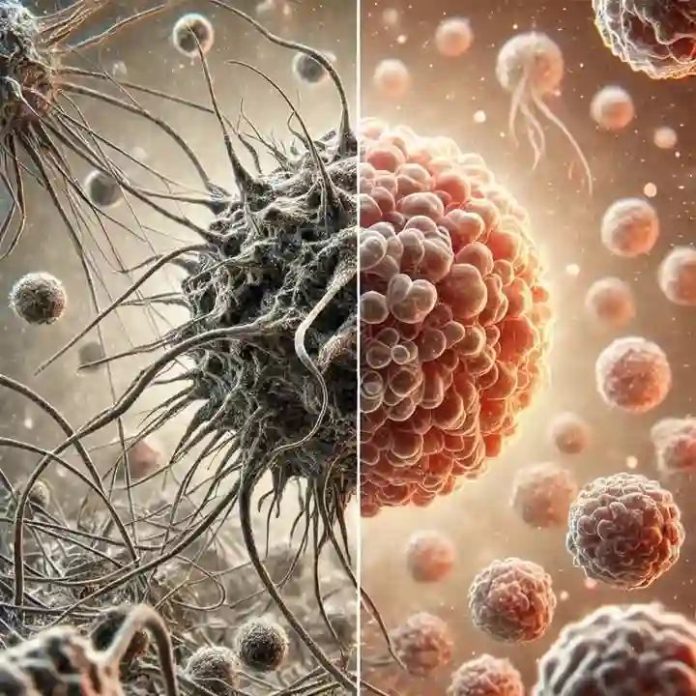Researchers in Korea have made a significant advancement in cancer treatment that could change the way we treat this complex disease. Rather than focusing on destroying cancer cells, which often results in adverse side effects, they have discovered a method to convert these cells back into a healthy state. By using a digital model of the gene network found in normal cells, the team identified crucial molecules that regulate cell differentiation—the process by which cells specialize. By inhibiting these molecules in colon cancer cells, they successfully reverted them to a normal-like state, effectively neutralizing the cancer threat without damaging any cellular material.
This innovative strategy underwent testing through digital simulations, molecular experiments, and trials in mice, yielding promising results. The researchers believe that this discovery could lead to a new paradigm in cancer therapy, emphasizing the restoration of original healthy functions over the elimination of cancer cells. As a result, this approach is expected to minimize side effects and enhance patient outcomes.
Additionally, the team utilized their digital modeling program to locate similar molecules in mouse brains, indicating the potential applicability of this technique to various cancer types. This breakthrough not only shifts the perspective on cancer treatment but also serves as a powerful tool to better understand the intricacies of cell development and differentiation. The ability to manipulate these biological processes may have significant implications for regenerative medicine and other medical fields.
While the research is still in its early phases, it signifies a major step forward in the battle against cancer, offering hope for more effective and less harmful therapies in the future. The researchers are optimistic that their findings will usher in a new era of cancer treatment, focusing on restoring health rather than merely eradicating disease. This approach has the potential to transform cancer care, leading to improved outcomes and enhanced quality of life for patients around the globe.


